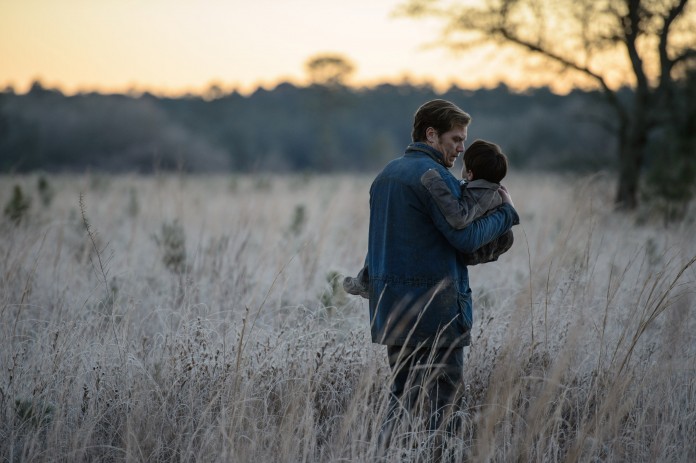Though Midnight Special undoubtedly falls under the umbrella of the science-fiction genre, Jeff Nichols’ latest endeavour – and follow up to the quite remarkable drama Mud – is a profound study of character, chronicling the relationship between a young boy and his adoring, protective parents. Similarly to what had been achieved in Ex Machina, we’re dealing with yet another enchanting, compelling piece of cinema that takes place in a surrealistic, fantastical environment and yet remains grounded by its naturalistic tendencies.
As the news report the abduction of a young boy, it transpires that Alton (Jaeden Lieberher) is instead on the run, alongside his father Roy (Michael Shannon), mother Sarah (Kirsten Dunst) and their old friend Lucas (Joel Edgerton). It’s not just the police pursuing the collective either, as the FBI, and in particular Agent Sevier (Adam Driver), want to know how Alton has been able to intercept and decode heavily encrypted transmissions from satellites in space. These special, supernatural powers the youngster has are the reason his family are fleeing, vying tirelessly to escape from the clutches of those at a ranch led by Calvin Meyer (Sam Shepard), who worship this gifted child.
In spite of the unbearable tension and suspense that exists in parts, while our protagonists are evading capture, it’s of great commendation to the director that he manages to maintain such an ineffable sense of enchantment, with a spirit and atmosphere akin to the likes of E.T. – with an equal level of imagination and ambition. Similarly to the Spielberg endeavour, the rousing, indelible score (by David Wingo) aids the magical feel, that not only captures, but dictates the tone of this production.
Most filmmakers would be likely to begin this tale further back, perhaps more interested in how Alton came to be in possession of such remarkable abilities, but Nichols is not most filmmakers, and instead throws the audience in to the deep end, instantly adopting tropes of the thriller genre, as a chase between the fugitives and the cops ensues. There is no spoon-feeding the viewer either, no flashbacks or palpable explanation – Nichols thrives in the notion of ambiguity, as we gather brief snippets of information along the way.
The problem, however, with dealing in the art of mystery, is that the unknown is a greater, more breathtaking concept than anything that can be presented in front of us. It’s that elusive nature we live off during this experience, so answers to our questions can only ever be unsatisfying, as there can be no bonafide, conclusive explanation that can bring about any sense of closure – and Nichols can be accused of giving his audience too much in the closing stages. But it takes little away from this mesmerising picture, that continues to mark Nichols as one of the more prominent voices and storytellers in contemporary cinema.







